Filter by

Four Shades of Gray: The Amazon Kindle Platform
Four Shades of Gray offers the first book-length analysis of Amazon's Kindle and its impact on publishing. Simon Peter Rowberry recounts how Amazon built the infrastructure for a new generation of digital publications, then considers the consequences of having a single company control the direction of the publishing industry. Exploring the platform from the perspectives of technology, texts, an…
- Edition
- -
- ISBN/ISSN
- 9780262369114
- Collation
- 1 online resource
- Series Title
- -
- Call Number
- -
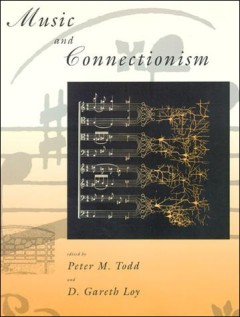
Music and Connectionism
Music and Connectionism provides a fresh approach to both fields, using the techniques of connectionism and parallel distributed processing to look at a wide range of topics in music research, from pitch perception to chord fingering to composition. As one of our highest expressions of thought and creativity, music has always been a difficult realm to capture, model, and understand. The connec…
- Edition
- -
- ISBN/ISSN
- 9780262285032
- Collation
- -
- Series Title
- -
- Call Number
- -
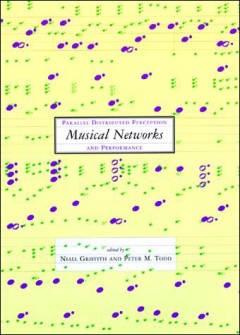
Musical Networks: Parallel Distributed Perception and Performance
This volume presents the most up-to-date collection of neural network models of music and creativity gathered together in one place. Chapters by leaders in the field cover new connectionist models of pitch perception, tonality, musical streaming, sequential and hierarchical melodic structure, composition, harmonization, rhythmic analysis, sound generation, and creative evolution. The collection…
- Edition
- -
- ISBN/ISSN
- 9780262274319
- Collation
- -
- Series Title
- -
- Call Number
- -
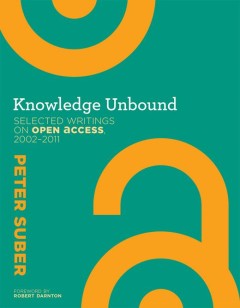
Knowledge unbound: Selected writings on open access, 2002-2011
Selection of writings, mostly from the author's SPARC open access newsletter.Peter Suber has been a leading advocate for open access since 2001 and has worked full time on issues of open access since 2003. As a professor of philosophy during the early days of the internet, he realized its power and potential as a medium for scholarship. As he writes now, "it was like an asteroid crash, fundamen…
- Edition
- -
- ISBN/ISSN
- 9780262329552
- Collation
- 1 online resource (xvi, 436 pages)
- Series Title
- -
- Call Number
- -
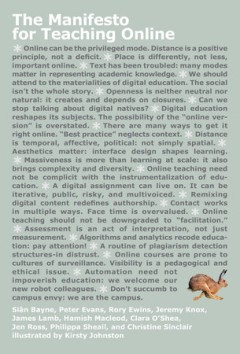
The Manifesto for Teaching Online
In 2011, a group of scholars associated with the Centre for Research in Digital Education at the University of Edinburgh released “The Manifesto for Teaching Online,” a series of provocative statements intended to articulate their pedagogical philosophy. In the original manifesto and a 2016 update, the authors counter both the “impoverished” vision of education being advanced by corpora…
- Edition
- -
- ISBN/ISSN
- 9780262361064
- Collation
- 1 online resource
- Series Title
- -
- Call Number
- -
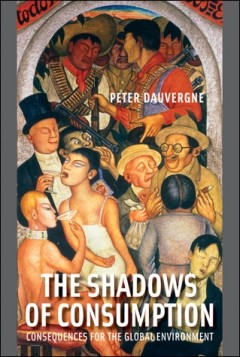
The shadows of consumption : Consequences for the Global Environment
An environmentalist maps the hidden costs of overconsumption in a globalized world by tracing the environmental consequences of five commodities.The Shadows of Consumption gives a hard-hitting diagnosis: many of the earth's ecosystems and billions of its people are at risk from the consequences of rising consumption. Products ranging from cars to hamburgers offer conveniences and pleasures; but…
- Edition
- -
- ISBN/ISSN
- -
- Collation
- 1 online resource (xvi, 315 pages)
- Series Title
- -
- Call Number
- -
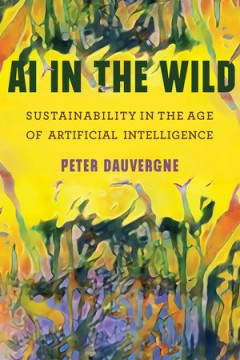
AI in the Wild: Sustainability in the Age of Artificial Intelligence
Drones with night vision are tracking elephant and rhino poachers in African wildlife parks and sanctuaries; smart submersibles are saving coral from carnivorous starfish on Australia's Great Barrier Reef; recycled cell phones alert Brazilian forest rangers to the sound of illegal logging. The tools of artificial intelligence are being increasingly deployed in the battle for global sustainabili…
- Edition
- -
- ISBN/ISSN
- 9780262359573
- Collation
- 1 online resource
- Series Title
- -
- Call Number
- -

"Language and Space "
- Edition
- 1
- ISBN/ISSN
- 9780262268806
- Collation
- -
- Series Title
- -
- Call Number
- -
- Edition
- 1
- ISBN/ISSN
- 9780262268806
- Collation
- -
- Series Title
- -
- Call Number
- -
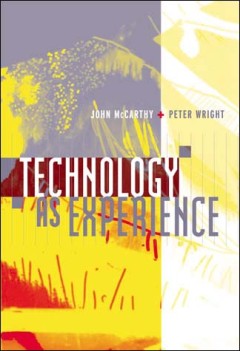
Technology as Experience
How to understand our interactions with technology: considering the emotional, intellectual, and sensual aspects of the user experience.OCLC-licensed vendor bibliographic record.
- Edition
- -
- ISBN/ISSN
- 9780262256643
- Collation
- 1 online resource (x, 211 pages)
- Series Title
- -
- Call Number
- -
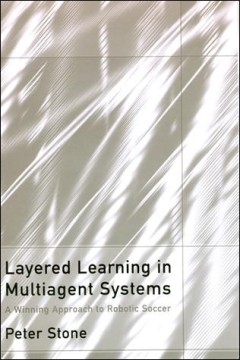
Layered Learning in Multiagent Systems: A Winning Approach to Robotic Soccer
This book looks at multiagent systems that consist of teams of autonomous agents acting in real-time, noisy, collaborative, and adversarial environments. The book makes four main contributions to the fields of machine learning and multiagent systems. First, it describes an architecture within which a flexible team structure allows member agents to decompose a task into flexible roles and to swi…
- Edition
- 1
- ISBN/ISSN
- 9780262284448
- Collation
- -
- Series Title
- -
- Call Number
- -
 Computer Science, Information & General Works
Computer Science, Information & General Works  Philosophy & Psychology
Philosophy & Psychology  Religion
Religion  Social Sciences
Social Sciences  Language
Language  Pure Science
Pure Science  Applied Sciences
Applied Sciences  Art & Recreation
Art & Recreation  Literature
Literature  History & Geography
History & Geography